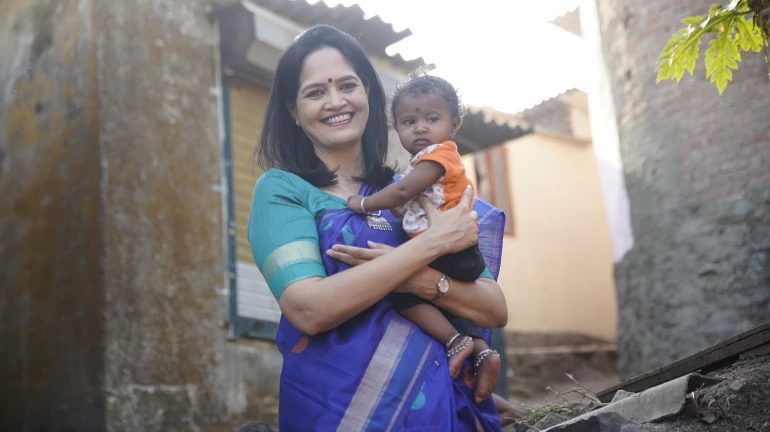
Dr Aparna Hegde, Founder, Chairperson and Managing Trustee of non-profit organization ARMMAN has featured in the 2021 list of Fortune’s the World’s 50 Greatest Leaders. She did so to elaborate on the impactful work done in Maternal and Child health care through technology during COVID-19.
Hegde remarked, “When the coronavirus pandemic struck, we adapted our extensive technology platform and launched four COVID-19 interventions to aid pregnant women, children and health workers.”
ARMMAN is also supporting the government in its door-to-door vaccination campaign, ‘Har Ghar Dastak’. The initiative aims towards full vaccination in poor-performing districts. They look to do so by sending calls and messages to frontline health workers via their existing infrastructure. On the other hand, they collaborated with Google using AI to strengthen its interventions and improve maternal and child health outcomes.
Hegde elaborated, “ARMMAN has partnered with Google Research, India (AI for Social Good); CRCS, Harvard University; and IIT Chennai to use Artificial Intelligence to predict the risk of expectant mothers dropping out of our mMitra program along with creating targeted interventions to improve positive healthcare outcomes.”
She added, “The pilot is already showing encouraging results - AI could enable ARMMAN to increase the number of women engaged through the program by 50 per cent.”
During her conversation with Mumbai Live, she threw light upon how she managed to curate innovative approaches and the use of mobile technology in the healthcare arena. Hegde elucidated, “When I was doing my residency at Sion Hospital in Mumbai, I saw pervasive systemic problems leading to maternal and child deaths that were completely preventable. Around that time, the mobile phone came to India, that’s when I decided to use the mobile phone to bridge the yawning systemic gaps in health care.”
Moreover, Hegde hopes to increase direct access of pregnant women and mothers to critical lifesaving information and improve the knowledge of health workers to provide the required care in time.
“ARMMAN’s approach is where low-risk women at the base of the pyramid get broad-based content while those with high-risk conditions or the most disadvantaged with the least equity get more targeted content with greater handholding support through 2-way communication”, mentioned Hegde.
ARMMAN is also in partnership with the Indian government, to implement the largest mobile-based maternal messaging program and training program for health workers in the world. Hegde enunciated, “Our “tech plus touch” approach leverages the existing frontline health worker network of the government, partner NGOs and combines it with the ubiquity of the mobile phone, to achieve scale cost-effectively without duplicating efforts.”
In their partnership with the Ministry of Health and Family Welfare in January 2019, they implemented Kilkari and Mobile Academy programs. Hegde articulated, “Kilkari is the largest mobile-based maternal messaging program in the world and has reached 23.6 million women in India to date. Similarly, Mobile Academy is the largest health- worker training program in the world; over 212,000 frontline health workers (ASHAs) have been trained so far.”
Whilst technology can be utilized to fight the battle against COVID-19, Hegde believes that it should ensure that the vulnerable, and those without access to technology are not left behind. “It is important to design solutions that are access-based and therefore more equitable”, she says.





